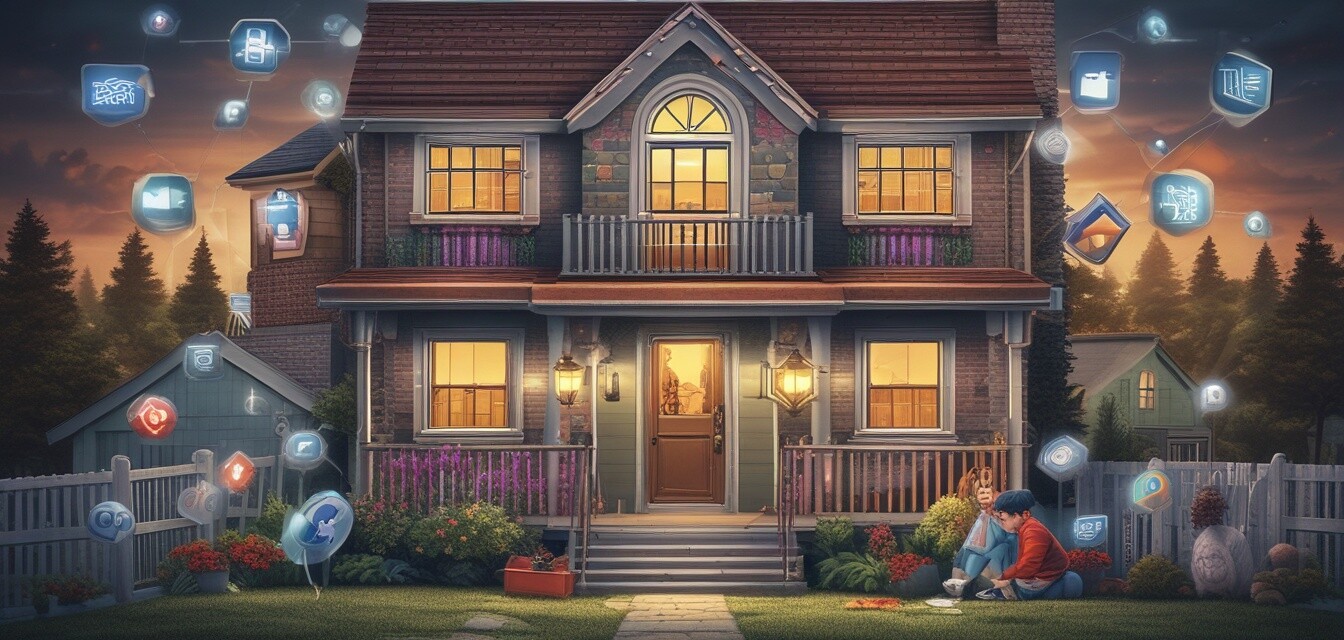
Smart Home Security
Using Social Media for Home Security Awareness
Key Takeaways
- Social media is an effective tool for building community awareness about home security.
- Engaging content can spread information regarding crime prevention techniques.
- Communities can leverage platforms to share real-time updates on local security issues.
- Forms of content including visuals, videos, and posts can encourage community involvement.
- Partnering with local law enforcement enhances credibility and reach.
In today's digital world, social media has emerged as a powerful tool for various causes, including crime prevention and home security strategies. As neighborhoods increasingly seek ways to improve safety, social media can play an essential role in building community awareness and encouraging proactive measures. In this article, we explore how social media can be utilized effectively for enhancing home security.
The impact of social media on community safety
Social media platforms give residents a framework to share vital information rapidly. They're not just appealing to younger generations; all age groups are utilizing platforms like Facebook, Twitter, and Nextdoor to stay connected. Let's take a closer look at how these platforms enhance community safety:
| Platform | Purpose | Example Usage |
|---|---|---|
| Community Groups | Residents share alerts about suspicious activity. | |
| Nextdoor | Neighborhood Alerts | Real-time crime reports from neighbors. |
| Quick Updates | Local law enforcement posts urgent information. | |
| YouTube | Educational Content | Videos demonstrating home security measures. |
Effective content strategies for awareness
To maximize the impact of social media on home security, certain content strategies can be implemented. These strategies can attract attention, encourage sharing, and provide valuable information. Here are some suggestions:
- Engaging visuals: Use eye-catching images, infographics, and videos to convey practical security tips.
- User-generated content: Encourage community members to share their experiences with home security.
- Surveys and polls: Gather feedback to understand community concerns and interests related to security.
- Quick tips and tricks: Regularly post bite-sized information that residents can implement easily.
- Live Q&A sessions: Host sessions with local law enforcement or security experts to answer community questions.
Building partnerships for greater impact
Collaborating with local law enforcement or neighborhood watch groups can significantly enhance the credibility and effectiveness of your social media initiatives. Here’s how to go about it:
- Contact local police departments about comfort levels in engaging on social media.
- Share relevant campaigns, events, or workshops through your platform.
- Encourage officers to post about safety tips and community initiatives.
- Highlight emergency contact information and encourage neighbors to connect.
- Organize community events, promoting them through social media.
Case studies and success stories
There are several instances where communities have successfully utilized social media for increasing safety awareness. Let’s explore a couple:
| Community | Strategy | Outcome |
|---|---|---|
| Springfield | Monthly safety tips shared via social media | Increased engagement and reduction in petty crimes. |
| Mapleton | Real-time alert system through neighborhood groups | Quick responses to suspicious activities. |
Conclusion
Social media has changed the landscape of community engagement and safety awareness. By leveraging these platforms effectively, neighborhoods can develop stronger connections and share essential information about home security. Whether it’s through engaging content, partnerships, or success stories, the benefits are clear. Start utilizing social media in your neighborhood today for enhanced awareness and security!
Pros
- Quick dissemination of information.
- Enhanced community engagement.
- Allows real-time communication.
- Increased visibility for local concerns.
Cons
- Can spread misinformation if not moderated.
- Requires consistent content creation.
- Privacy concerns may deter some users.